Student Blog
Fieldwork
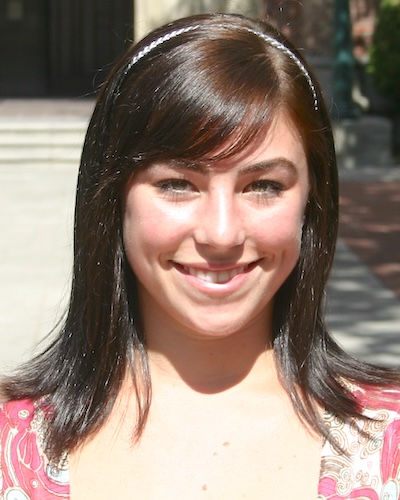
A Summer of Surprises ⟩
October 23, 2010, by Austen
Fieldwork What are OS/OT?
I was initially uneasy with my first summer fieldwork placement at an inpatient acute rehabilitation floor of a large hospital. I had no idea what to expect as I had no prior fieldwork experience in that setting. I was worried about not liking physical disabilities, not being good at it, and being overwhelmed in a hospital setting.
The inpatient rehab unit I was on was super intense as I had expected, and there were so many things to remember. I worked 4 days a week 10 hour days, arriving in time to see my first patient at 7am, and leaving around 5pm. By the time I got home, I was exhausted from mental, physical, and emotional overload. It was an 18 bed unit, with a large OT and PT gym area, fully equipped kitchen, and lots of activities resources to choose from. I observed the first couple weeks, then started brainstorming treatment ideas, eventually taking on one patient of my own. About half way through the 12 week internship I started treating an entire caseload of 5-6 patients in a day. I was treating on my own, with my clinical instructor either in another room with her own patient or down the hall at our desk. I had an amazing clinical instructor. She was supportive, encouraging, helpful, thorough, patient, and challenging and we got along great. She knew when to push me, she knew when to step in. She was an incredible teacher. I really lucked out.
In the observation phase, I remember watching my clinical instructor help a 380 pound woman diagnosed with “failure to thrive” to the commode, assist with perineal care as the patient was not able to reach, and also bathe every crease of the patient’s body to ensure thorough washing. I was worried about the day I would have to do that myself and I was quick to think a hospital is not a place I want to work later on. Essentially, I was scared to do something I had never done before. Not only was I hesitant about some of the responsibilities of the OT in an acute rehab setting early on, but I was critical of the overall hospital setting as I assumed more hands-on experience. It was pretty stressful and overwhelming from what I experienced, and it was really fast-paced. I was constantly moving, always on my feet, always thinking on the go. I worked up a sweat all day as I was constantly transferring patients, running around collecting items, running errands, etc. I would go home and collapse after a day at work. There was no leftover energy to do much of anything else.
Then the third to last week of fieldwork arrived. At that time I was treating my own caseload, completing all documentation, and feeling comfortable with my routine. A 10-hour day was still physically and mentally taxing on me, but it was doable. I found a schedule that worked for me, I found a way to manage my patients, I found a way to be organized. And I was having fun! It was at that moment that I could not only look at the checklist of things I had to complete, but I could enjoy being with my patients. I found a way to balance being the health care professional and the cheerleader, the coach and the friend. Something clicked. The last couple weeks were the best ones, because I felt like I knew what I was doing and I saw the difference I was making. My patients would go home saying “Thanks a million,” “I could not have done this without you,” and “I really appreciate all of your help.” That makes it all worth it.
Despite my initial trepidation, working in acute rehab was an amazing experience and I learned a number of lessons. It may seem cliche, but I learned to not always rely on first impressions. After the incident with that obese woman, I dreaded going into that hospital for the first couple weeks, worried about the first day I would have to get my hands dirty. However, once I stepped in and started treating, I never flinched again. I realized that my first impression that working in a hospital was not for me was too quick of a judgement. I sit in the classroom now wishing I was back on that acute rehab unit. My summer experience was way better than I ever thought it would be. I also learned to keep an open mind. Before I started, I told myself I was not going to like it and I was going to be bad at it. Much to my surprise, I loved my fieldwork there, and happened to do a great job! So, just because you think you may not like something or may be bad at it, give it a try anyway and you may surprise yourself like I did.
⋯
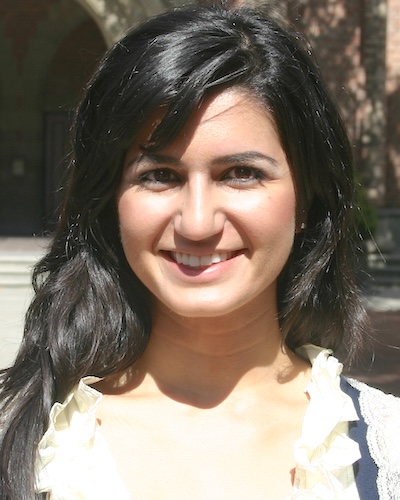
Ghana ⟩
October 11, 2010, by Helen
Fieldwork International What are OS/OT?
As a first year in the graduate program at USC, you have the opportunity to travel to Ghana and have a pediatric physical disabilities fieldwork experience. I had an amazing experience in Ghana and would love to return and work with the children there in the future. It was exactly this time last year that I was just deciding if I wanted to apply to travel to Ghana or not and I wanted to share some of my experience with those who are currently in the process of deciding whether or not they’d like to travel there this year. 😊 I learned more than I could have ever imagined from the children I met in Ghana and I highly recommend the trip to the first years in the graduate program.
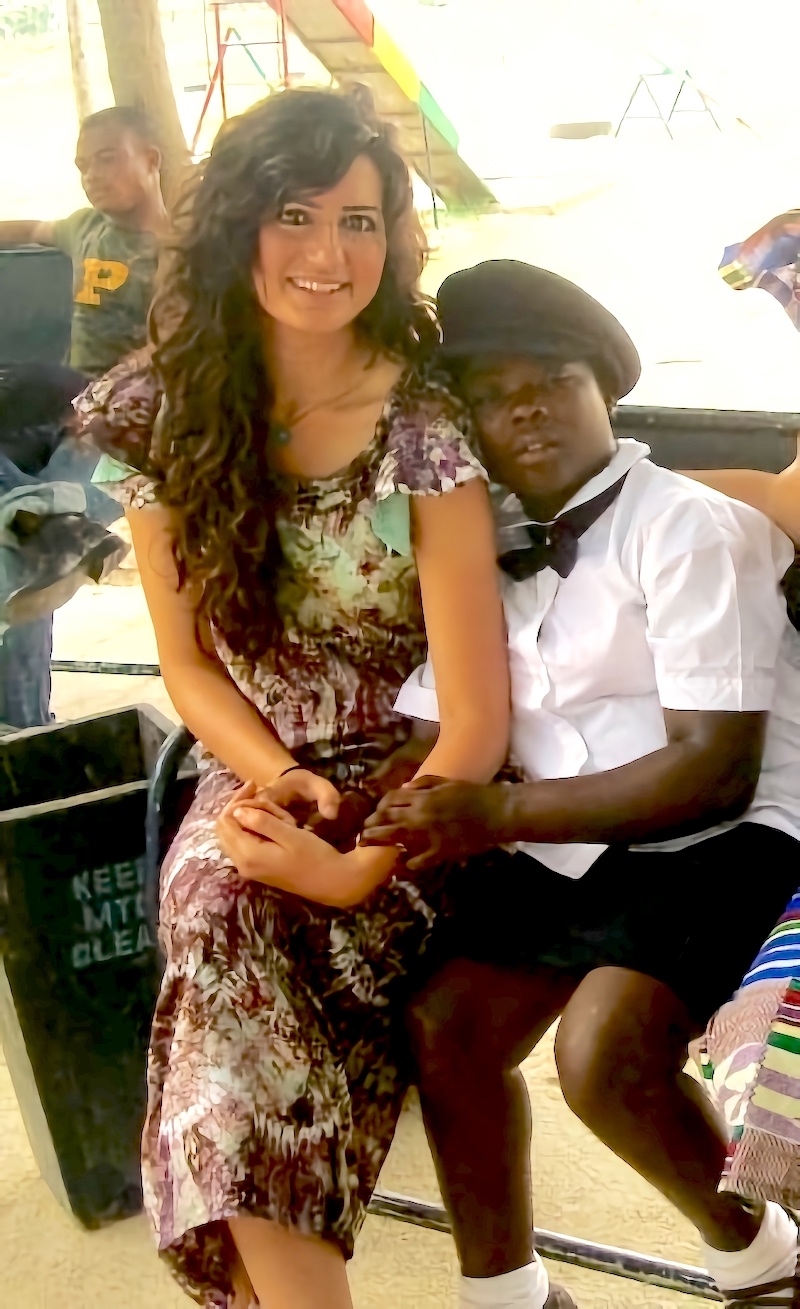
After a long trek from the airport, we stepped off our bus at Mephibosheth and the quiet was immediately broken by the laughter of children from behind their boarding hall window. This laughter was my source of energy for the entirety of my trip to Ghana. I had difficulty sleeping the first couple days I was in Ankamu and the Gomoa District because I was so excited to be engulfed by this entirely new place and people. I wanted to know every child’s history, how they had come to be at this facility, and I was so anxious to implement a treatment plan with students of my own. Little did I know, these children who I would be spending the following days with, would forever impact my value of time, family, resilience, interdependence, and the immeasurable value of healthcare access and occupational engagement.
Mephibosheth is the only facility in Ghana that addresses the needs of children with physical and mental disabilities. Pastor Joe and his wife Andrea have created this boarding school in the Gomoa District as a safe haven and source of occupational hope for children who are otherwise often unacknowledged by their society. As a boarding school with minimal in home aid from the school faculty, the children have adopted interdependency as their form of survival.
The practice of occupational therapy in the United States is defined by the American Occupational Therapy Association (AOTA) as being a science driven, evidence based profession that enables people of all ages to live life to its fullest by helping them promote health and prevent — or live better with — illness, injury, or disability (AOTA). Occupational therapists intervene to maximize quality of life at the early intervention, acute, or rehabilitation stages of development. As occupational therapists strive to promote independence and quality of life for clients experiencing an array of conditions, I was curious to see how therapy regarding independence in self-care would translate to the Ghanaian culture which so beautifully valued interdependence.
The day we sat quietly listening to Andrea, Pastor Joe’s wife, give us bullet points on each child’s medical and social histories, I mechanically wrote bullet points on the notes being dictated. My first notes read, “*Clara (name has been changed) — cage for six years, malnourished, Osteoporitic, estimated around 17-18 years old, has seizures, parents ashamed — guardianship given to German orphanage.” I couldn’t help but be in shock that I was just laughing for ten minutes outside with this same young lady about how she loves sunglasses and the ocean. I was quieted by the incredible confidence and happiness she exuded and humbled by how resilient this young woman who is actually 23 years of age is. My three pages of bullet form medical history notes about each child, have to this day not fully taken form in my mind.
I was baffled by the type of treatment plan I would create for our personal student *Kate, her bullets read “16-17 years, psych history, knocks doors to tell problems, taken to exorcism prayer camp, bit her breast/self mutilation, number one corn husker.” Knowing what resources were available to us, my partner and I attempted to brainstorm multiple activities we could do with her and made it our goal to give her as much positive attention as possible while trying our best to share our energy fairly between the two children we were assigned. Upon returning from Ghana, one of my most disheartening thoughts is that the entire two weeks I was there, I was unable to have a meaningful conversation with this young lady. I know that there was a language barrier in our attempts to talk to *Kate and that she was most likely not properly medicated and most definitely not in the most ideal place to address her needs, however I still felt a sense of responsibility to emotionally connect with this girl who would demand an apology from me every two minutes for looking at her, brushing against her, accidentally smiling a second too long at her, or not holding her hand when she wanted.
On the flight back from Ghana, I read our personal account readings about how practitioners should address mental health illnesses, emotional intelligence, and the value of having a trusted friend in the process of alleviating symptoms experienced by patients who have mental health disorders. As I read these personal account readings, I felt increasingly motivated to inspire change for people like *Kate who had suffered years of misunderstandings, physical and emotional trauma, and the trauma of social isolation. It seemed to me that everything these personal accounts told of what should not be done to address mental health needs was what *Kate had experienced and it breaks my heart to know that there is a very small likelihood that she will ever get the medical attention that the she truly deserves.
Pastor Joe preached on the value of being self-disciplined and having peer support. The value of leading a disciplined life was the topic of his three talks I attended at church. Leading a disciplined life means being able to practice self respect and through doing so and truly taking into consideration what is in one’s own best interest, is it possible to truly extend care and compassion for your neighbor. Pastor Joe preached that one must never forget that “there is always someone higher than you and someone lower. No one is above all.” This idea echoed in my mind as I observed the kids interacting with one another. Those who had increased range of motion helped the others get dressed, those who were able to read, helped pass out shirts with the proper labels, the kids who were doing better cognitively had the responsibility of passing out snacks. Everyone fed one another, wheeled one another, dressed one another, and shared every possession so openly. There is a set system of checks and balances among the kids at Mephibosheth. Each child has a role, character, and identity within their Mephibosheth family.
My last night at Mephibosheth, I had a conversation with one of the students that truly exemplifies the charisma of the children we worked with. I said to *Clara, “Your birthday is coming up! If you could do anything in the world for your birthday, what would that be?” and she replied with a smile “I would go to the beach and have a cola with my orphanage mother.” The children we worked with did not have the luxury of drinking soda and the beach was less than a mile away from their facility. The children travel to the beach once a year when the USC students visit, due to the need for adequate supervision/volunteers to travel with. The children I was so fortunate to have spent time with at Mephibosheth have forever influenced my thoughts, values, and ambition to decrease discrepancies in health care access.
⋯
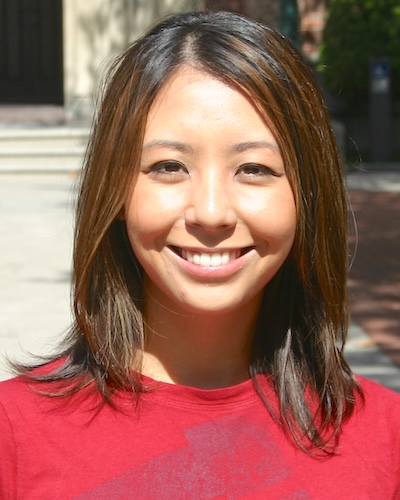
Practicing Occupation at a Senior Facility ⟩
October 5, 2010, by Carissa
Fieldwork What are OS/OT?
Occupation as a treatment modality.
During this past summer fieldwork at a senior facility, I found importance of putting into practice what all of our teachers have drilled into us — using meaningful activity not only as an ends for our treatment but as a means to get there. While this idea is easier to understand with kids, as play is meaningful to most children, it definitely takes a second or third thought when dealing with older adults. What is the individual’s goal? What motivates one person doesn’t necessarily motivate someone else. After using an interest checklist to see what mattered to my clients, I found that many of them loved to dance. Without a second thought, with the assistance of my clinical instructor, we set up an occupational therapy dance group. We tried to incorporated everyone who found dancing to be meaningful, including those who had experienced strokes, those with constant pain, those in wheelchairs, those with arthritis, those with Alzheimer’s, and those who just wanted to lose weight. The dance sessions consisted of mainly merengue and cumbia, with everyone voting for these latin beats. There was also opportunity for patients to bring in some of their own music and/or instruments. We found regulars in a group of people who did not regularly attend OT, people who attended mainly for a hot pack, or people with a tendency to be unmotivated for therapy. After about 5 weeks, with sessions 2x/week for 30 minutes, people were reporting decreased pain and losing weight (about 5 pounds!). Using occupation sets up for success. Not only did the clients enjoy themselves and benefit from treatment, but it was also therapeutic for me. I loved it! This made for an exciting summer far different from the typical 9-5 desk job.
⋯
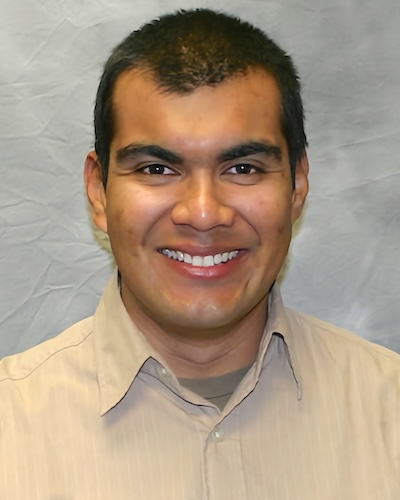
It all winds down . . . ⟩
May 10, 2010, by Gustalvo
Fieldwork Getting Involved Living in LA School/Life Balance What are OS/OT?
So, I’ve passed my comprehensive exam (i.e., comps), I’ve recently come back from AOTA’s 90th National Conference in Florida, and I am looking forward to one more fieldwork this summer — I feel pretty satisfied with myself right now. 😊
These last couple of weeks have been intense with papers, exams, and comps. But I survived, and part of what has helped me is reading and playing music. I’ve been able to squeeze in some leisurely reading (Alice’s Adventures in Wonderland), play some gigs with my mariachi ensemble, and jam on my own. Speaking of playing gigs, the mariachi that I’m in, Mariachi Sur de California, recently played a few gig on 5 de Mayo one of which was really fun; Los Angeles Southwest College put on a 5 de Mayo event on their campus for local elementary school children. The band had never had a crowd that was so in to the music, just about everyone stood up; children clapped, people sang — it was the most gratified I’ve ever felt at a gig. Also, we played at a church for Mother’s Day; that too went very well. It feels good to be playing and engaging in one of my most favorite occupations.
I also like to record on my free time, but lately I haven’t been able to and so I just jam on my own and I keep practicing snippets of ideas that I come up with so that I can record them over the summer when I have some time.
I can’t wait to get to get this summer started; you could say that I’m about to embark on my dream fieldwork experience. I’m interested in going in to the field of mental health, preferably in community mental health settings, but I also am interested in phys-dys. So, long ago when I was picking out my top ten choices for this summer’s fieldwork I spoke with Jaynee, our Fieldwork Coordinator, about what I wanted and she really helped me out in finding locations to pick from; she brought up transitional living centers (TLCs). I was excited about this for I had observed a TLC during one of my earlier rotations. A TLC basically helps individuals that have come out of inpatient acute rehab to reintegrate themselves back in to their communities. It involves facilitating how to get around, going grocery shopping, and helping them organize their day so that they may be independent among other things. To me it’s the perfect balance between the two worlds I want to combine, though mental health is and can be applied in any setting at any moment, I think the TLC will be a great fit for me!
OH! also, about a week ago I went to AOTA’s national conference in Orlando! It was a great experience. There was a workshop that caught my attention which I’m glad it did: “Engaging Marginalized Populations Through Qualitative Research.” This was one of the the most up was one of the most interesting workshops I attended. It touched about understanding the experience of marginalized populations, and how these experiences influence their occupational choices and participation. There were three speakers each touching upon the experiences of the the undocumented in the US, people suffering from obesity, and women who have just come out of incarceration. Learning of how stigmas influences these populations occupational choices and participation was very eye opening to me and has further encouraged my desire to do research in the future. The Q&A afterward was very engaging as well. I think the main take home message was that as OTs we need to advocate for populations that are suffering from occupational injustices**. That in addition to advocating for our profession we must also prioritize advocating for populations in need of occupational therapy and break the borders that currently create this schism between OT and underserved populations! It was a very exciting, uplifting, and refreshing workshop to say the least, and it was very unfortunate to see that so few people attended!
This conference was significant not only because it was my first, but also because Dr. Florence Clark was inaugurated as AOTA’s president! Congratulations Dr. Clark!
Anyway, I’m “walking” this Friday and I’m very excited, but also a little stressed since my cap & gown have yet to arrive!!! But I’m sure all will be fine, as everything always does!!
**Occupational justice = the concept that, to develop and thrive, humans are beings that need and want to participate in occupations. So, when there’s an occupational injustice due to a disability or environment, the focus is to enable these populations/individuals to access opportunities and resouces so that they may develop and thrive.
⋯
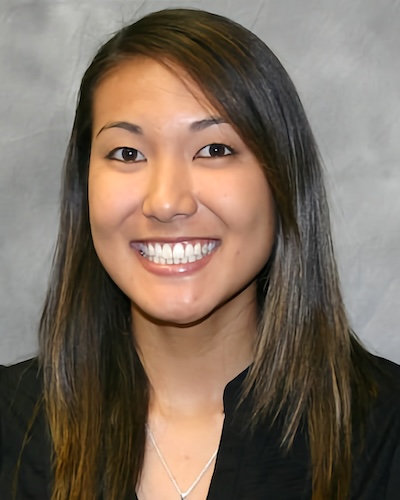
Looking Back — 1st Year ⟩
April 7, 2010, by Mari
Classes Fieldwork International School/Life Balance What are OS/OT?
Fall ’08 – Spring ’09
The transition from summer to fall semester was nice because we had a little more free time since we weren’t in class as often. The classes that we took were in Pediatrics, Physical Disabilities, Psychosocial Dysfunction, OT Skills, Gerontology, and Occupational Science. We also had labs for “Phys Dis” and Skills, and our Level I fieldwork (FW) during the fall and spring semesters. So, although we were spending less time in class, we were still quite busy. I chose not to work during my first year, which gave me more time to hang out with friends, help coach a club soccer team, and of course, study. 😉
Priscilla’s Surprise
Early on in the fall semester, we celebrated Priscilla getting married and threw her a surprise bridal shower! We try to find as many excuses as we can to hang out and have fun outside of school! I think she was definitely surprised!
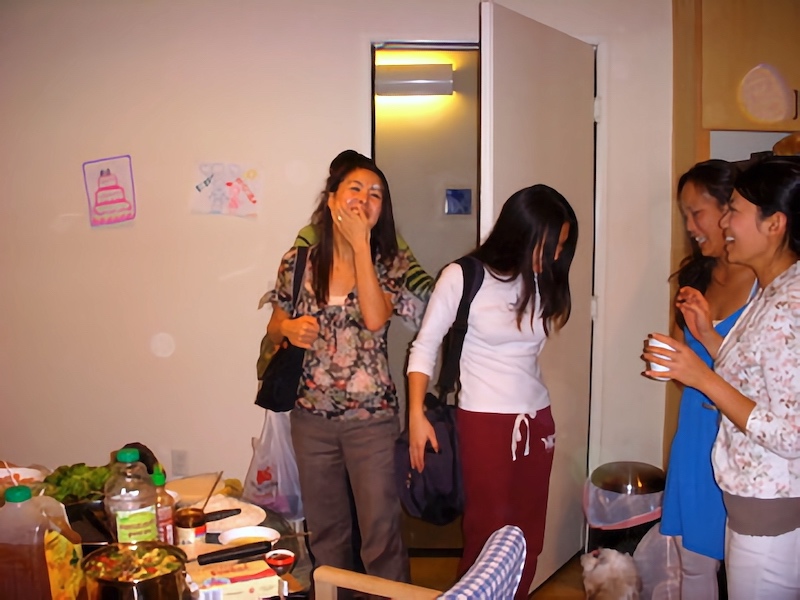
And here’s the whole group!
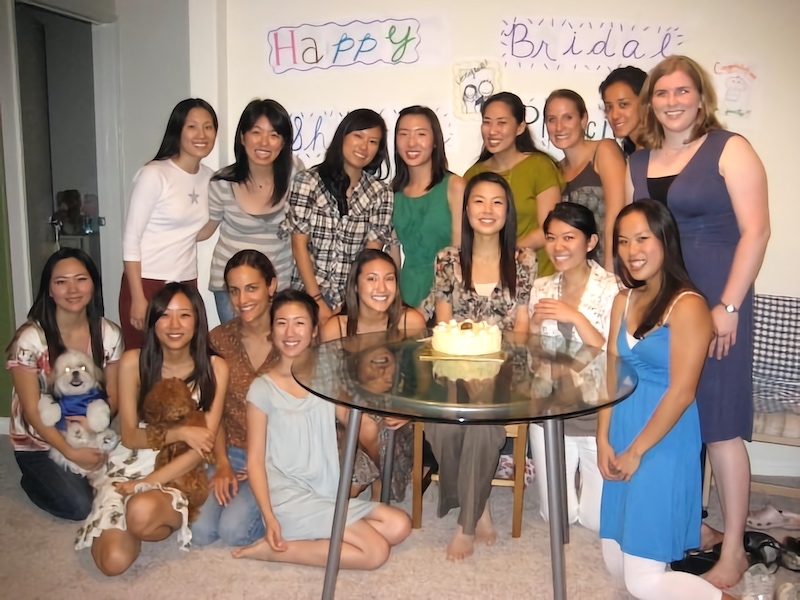
Casa Colina
Our first Level I FW was in the fall — I spent a full week at Casa Colina Centers for Rehabilitation in Pomona, CA, in the inpatient rehab unit. There are different departments at Casa — inpatient rehab, pediatrics, and transitional living. In the inpatient rehab department, the therapists were split into different teams, who generally treated a certain type of patient diagnosis. For example, there were teams for such diagnoses like spinal cord injury and brain injury/stroke, my team being the latter. My Clinical Instructor (CI) was Lisa and she was very knowledgeable and friendly! It was great to be able to work with her and see what it was like to be an OT in that setting. Casa had been pretty recently remodeled, so the facility was very impressive!
Here is a picture of the “Stroke” team on Halloween! It was a great way to end my fun week visiting Casa!
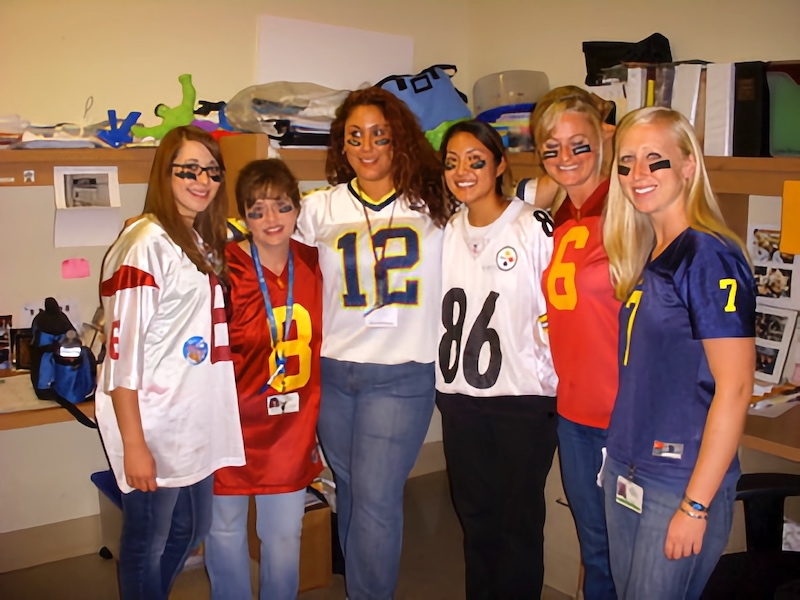
Ghana
My second Level I FW was in the spring — me, along with 32 other USC OT students, and 6 CIs spent two full weeks in Ghana! We worked with children with disabilities at the Mephibosheth Training Center (MTC), which is a boarding school for the children. This ministry was started by a Ghanaian pastor and his wife, who is a PT from the US. When we were there, there were 20 children, ages ~5-21 years old. In Ghana, they didn’t really know exactly how old the children were, and it made it tough to tell because many of them looked much younger than they really were. In Ghana, much, if not all of their livelihood is from physical labor or skills that a person has, therefore, people who have disabilities are looked down upon and seen as useless and hopeless. It is very sad, but infanticide is quite common if a child is born atypically, despite it being against the law. So, this is why MTC is such a wonderful place!
The children are taken in and they live at the boarding school for three months at a time. They will go home or to the orphanage they came from for one whole month, every three months. This is to encourage the children’s parents and the orphanage staff to be involved with their children’s health and well-being. At MTC, the children live amongst each other in a dormitory and they attend school and church together. Most of the children have chores and they are able to take care of themselves for the most part. It was so great to see how they truly act as one big family! What we were there for, was to help the children to increase their ability to do their everyday occupations. Two or three USC students were assigned one or two children. We assessed and observed them while they were in school, eating, and doing chores and self-care, in order to pinpoint what was going on with them and what they needed the most help with. We then developed a treatment plan, which we implemented during the week. And we created home and classroom programs (that were mostly pictures), which we taught to the children’s parents/orphanage staff and their teachers.
Going to Ghana was one of my most favorite experiences since I’ve been in OT school! Everything about it was amazing — the OT aspect: I learned so much in the short time that we were there and it really challenged my clinical reasoning skills and ability to think out of the box; the Christian aspect: being in a Christian environment was powerful as I saw some of my non-Christian USC friends being touched by the love that the Ghanaian children and people have for Jesus; the Ghanaian aspect: I absolutely loved Ghanaian culture — people were so laid back and friendly, it reminded me of home in Hawaii! We have so many stories and great memories from the trip, but here are a few pictures.
Meet Amanquah (~13 years old) — isn’t he so cute!? Sarah (another student ambassador) and I were partners on this trip and we had the opportunity to work with Aman! He didn’t have a specific diagnosis, but he had CP-like symptoms and malnutrition. He was very weak — he had to use a wheelchair to get around and would scamper on the ground on his elbows, hands, and knees to get around. He had a difficult time holding his head up, which inhibited him from efficiently participating in many of his occupations — eating, self-care, and doing schoolwork. He also didn’t speak much, but we could tell he was very bright!
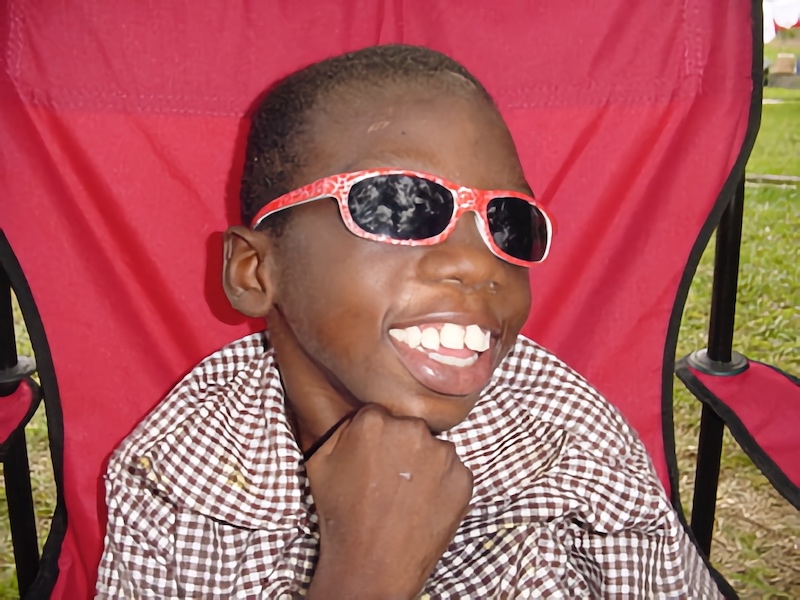
Barb was Sarah and my CI — it was her first time to Ghana as well. She was great! She brought a lot of good ideas and insight into our treatment and care for Aman!
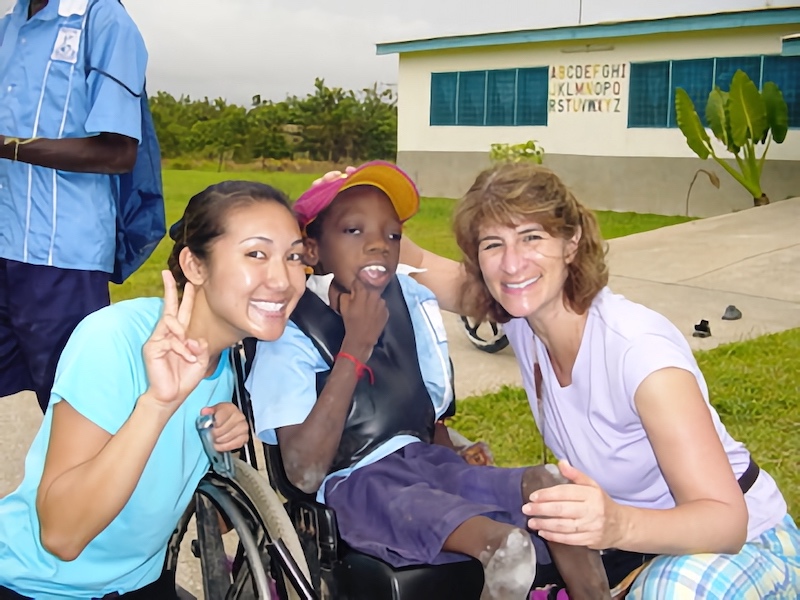
Here is Sarah and Aman taking a break between one of the exercises that we were doing to increase the strength of Aman’s neck extensors (to lift his head up).
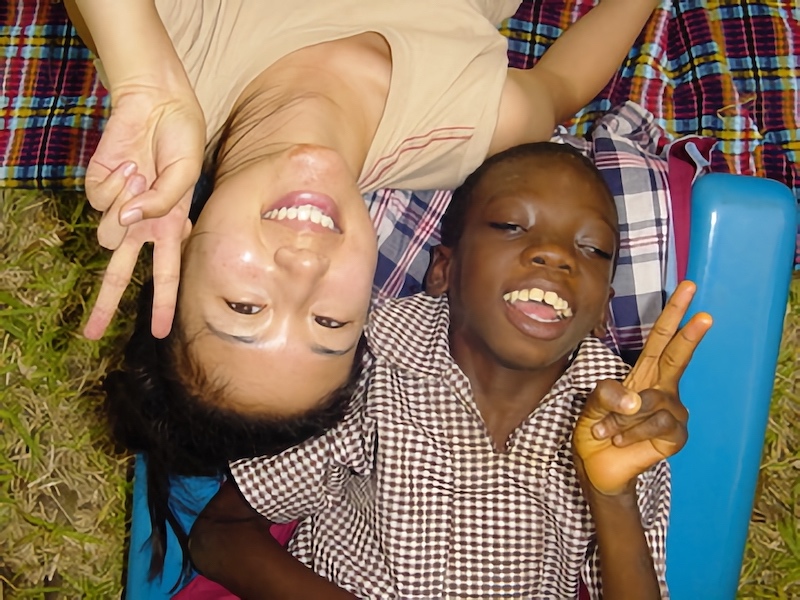
And here’s Aman and me doing one of his other favorite occupations — drawing and writing!
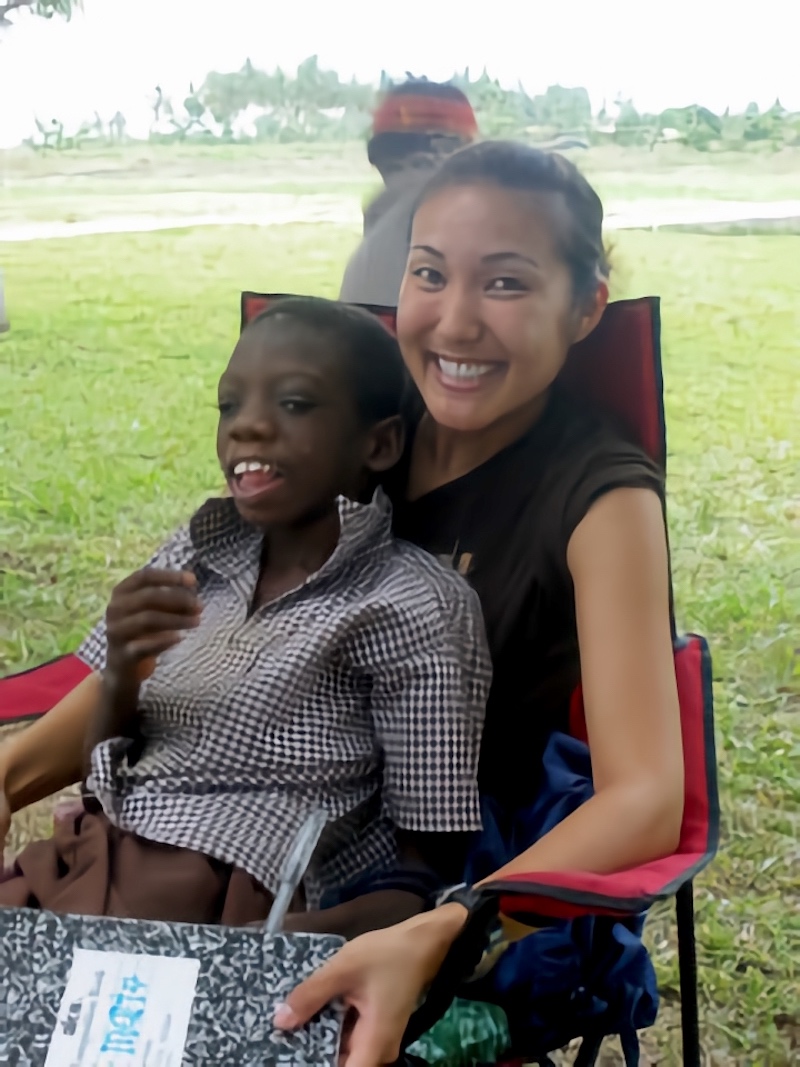
24th Birthday
Also, during the spring, my birthday, which happens to be Earth Day, came around, and of course, some of my friends and I used it as a reason to get together after class!
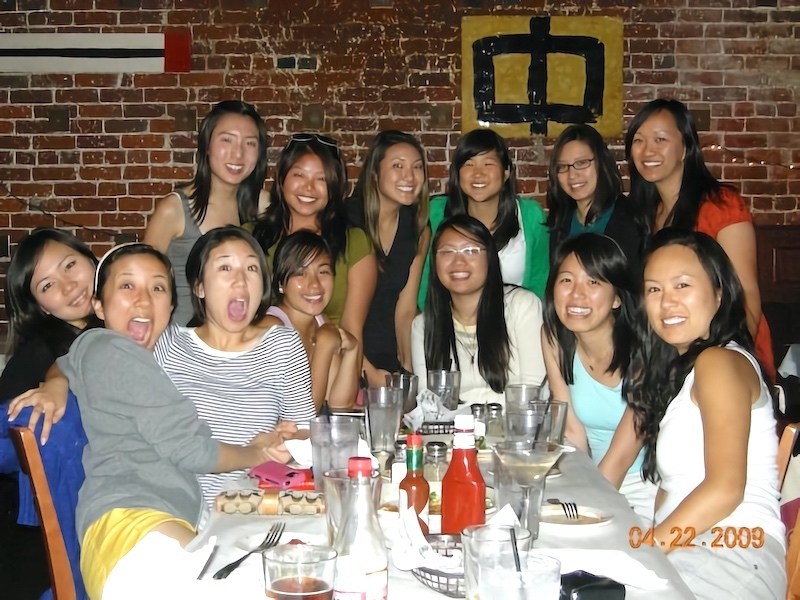
OT Banquet/Prom
And another great way to end the year — OT Banquet/Prom! A fun night of dressing up, good food, dancing, and great company!
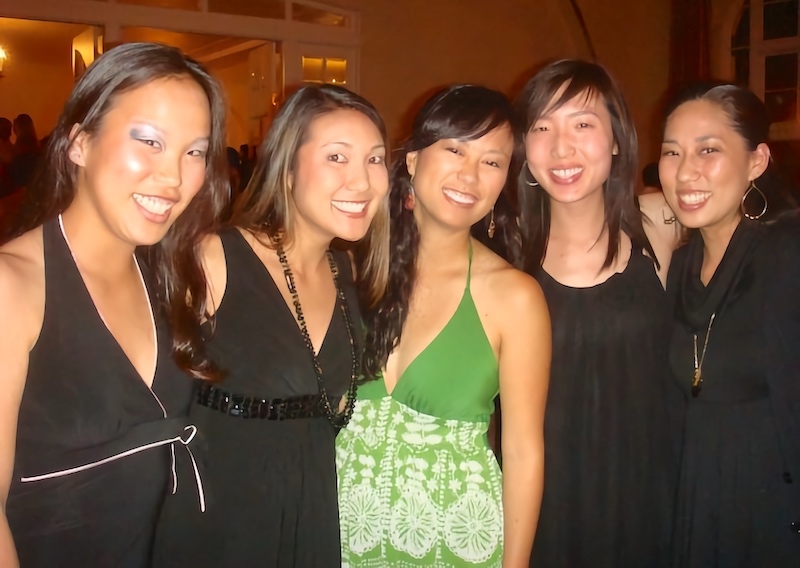
So that was a glance back at my first year. It definitely flew by quickly! To sum up the school portion of it — FW, labs, group projects, practicums, and site visits!
⋯





